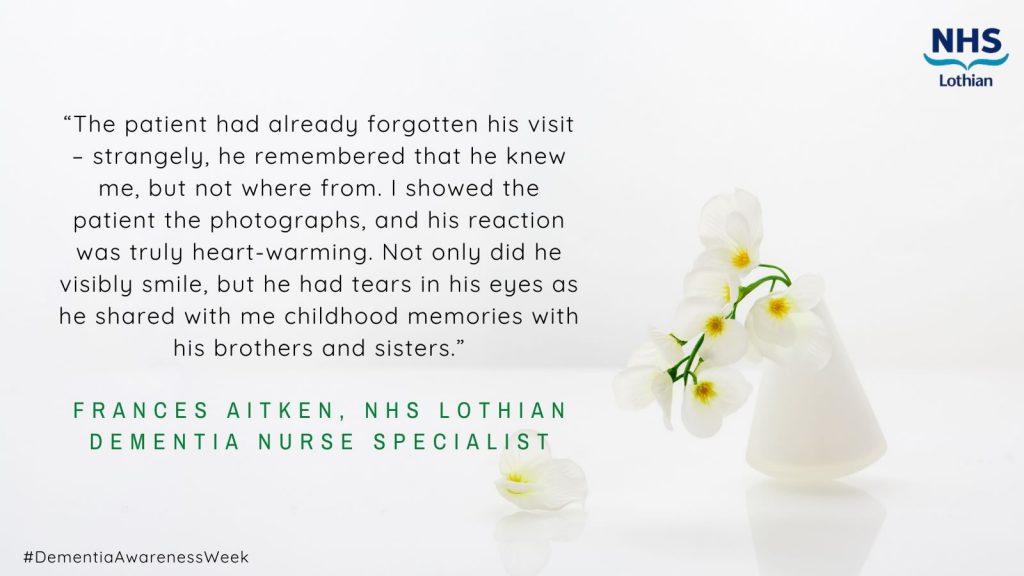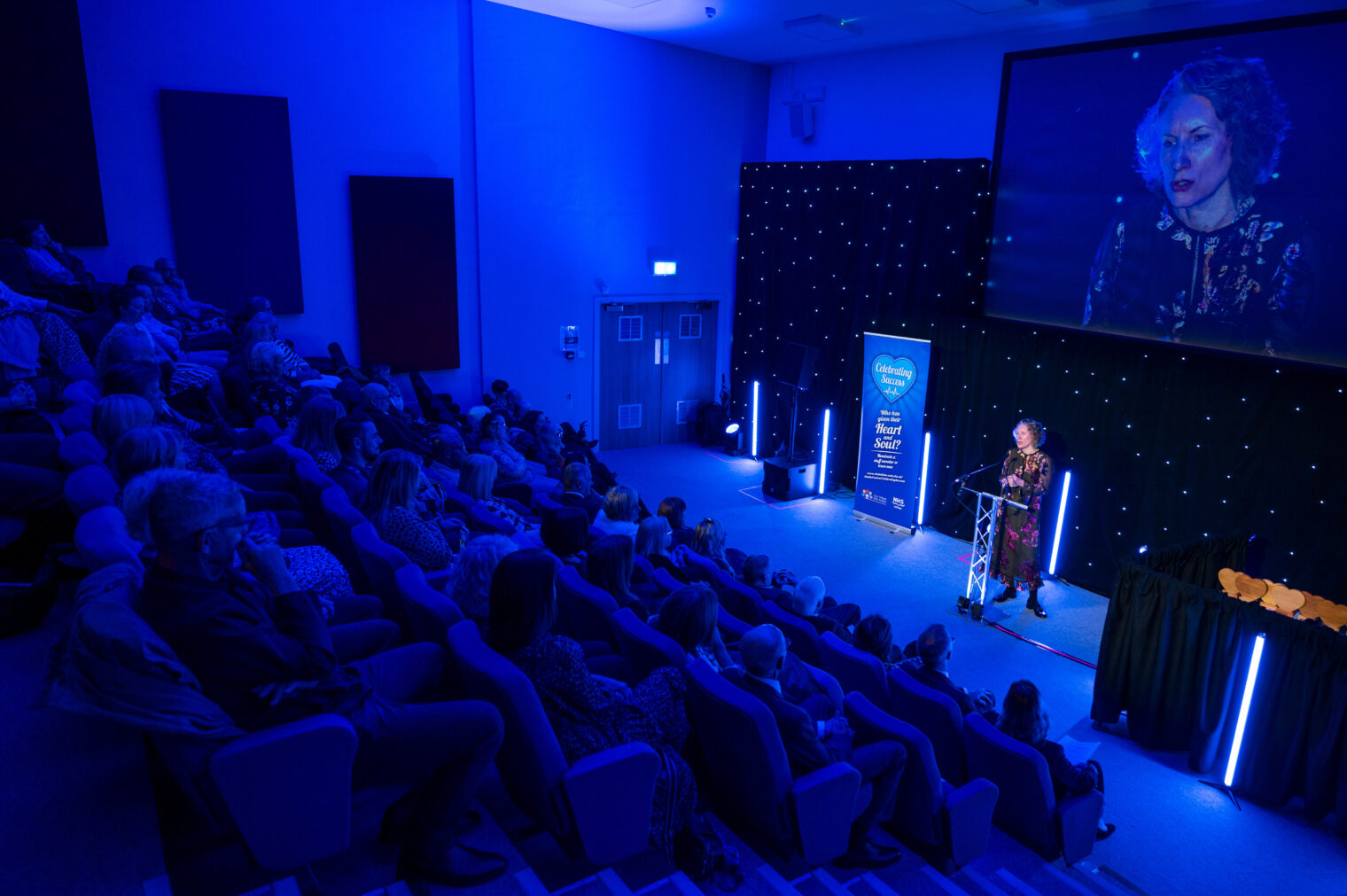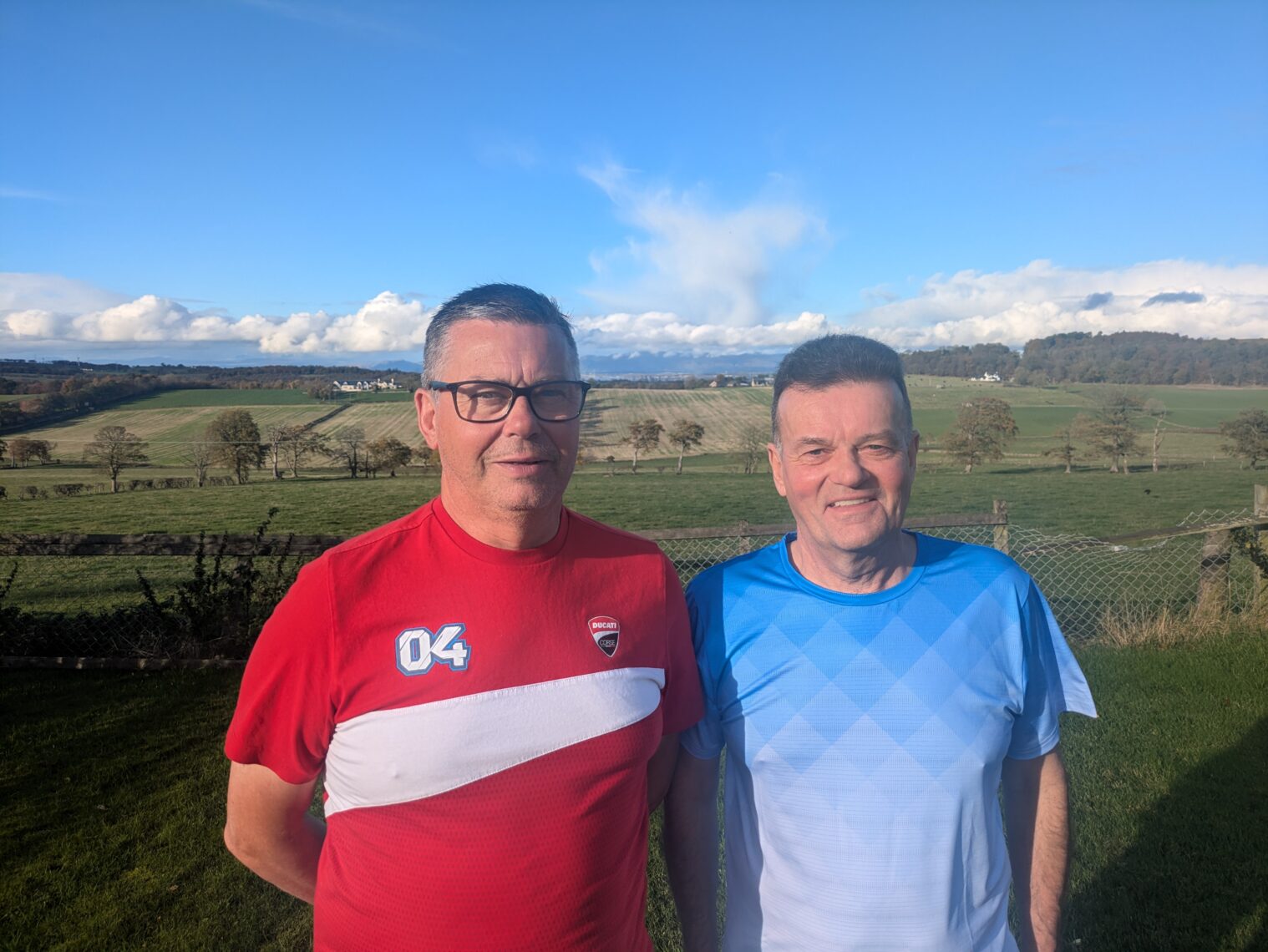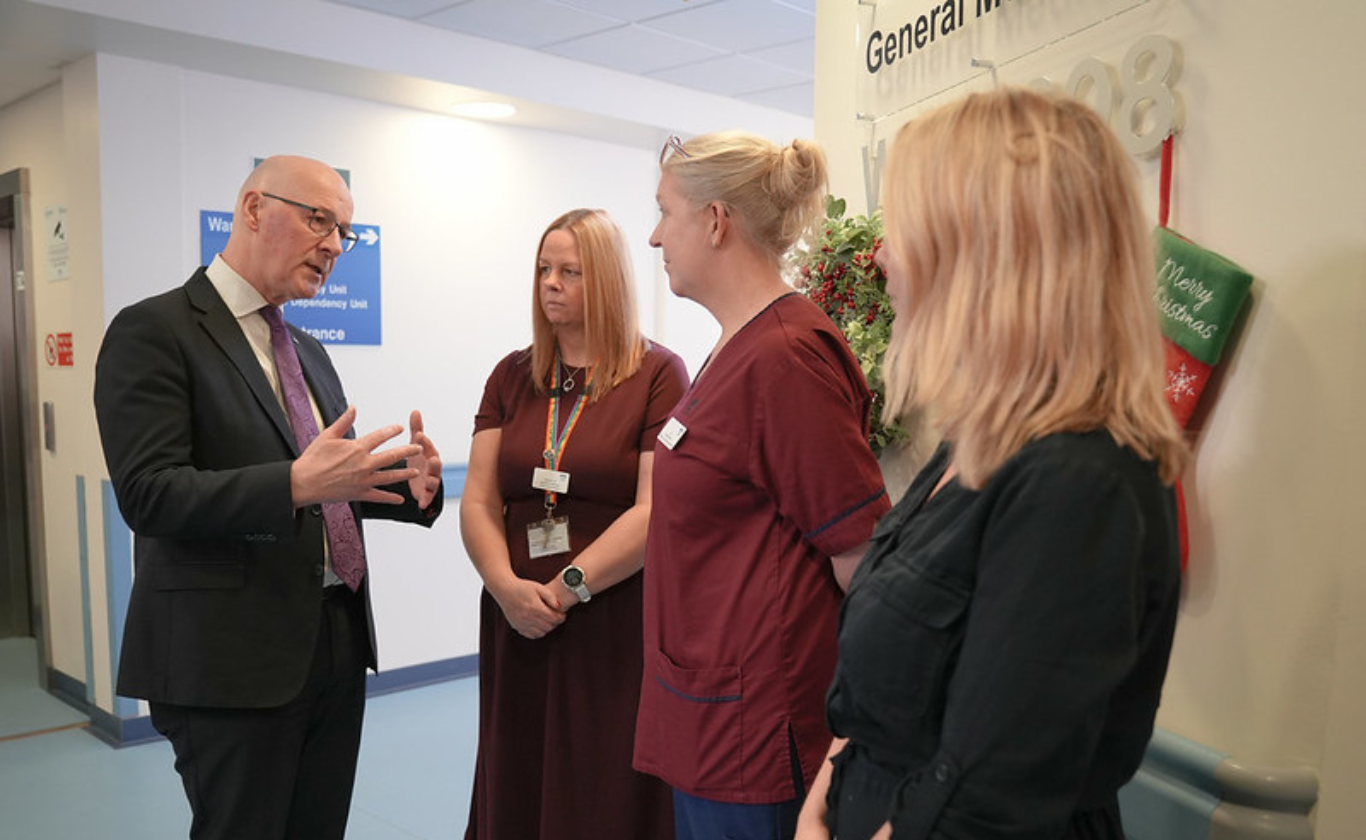Dementia Awareness Week is organised by Alzheimer’s Scotland. This year, the week runs from 31 May to 6 June. In Scotland, over 90,000 people live with dementia. One of the nurses caring for these people is Frances Aitken, who is the Dementia Nurse Specialist in St John’s Hospital. “I spend most of my time supporting staff to support their patients in the best way. It can be a difficult job, because you meet people who can be in a lot of emotional pain, but I really love seeing that bulb of understanding light up when I’m talking with staff. When I see them realise the difference they can make to someone’s life, that’s invaluable.”
Dementia can affect every area of human thinking, feeling and behaviour, but each person with dementia is different. Some people with dementia, particularly the type of dementia with Lewy bodies, can experience hallucinations across all their senses. “Primarily I work within the acute setting alongside ward staff to reduce distress in patients that have an altered reality,” Frances says. “A lot of my referrals are patients with delirium. When patients are distressed and have needs that are not met, this can lead to crises and that can be the catalysts for incidents. I support staff to find that unmet need using a variety of tools.”
One of those tools is the Meaningful Activity Centre (MAC), which Frances runs in the afternoons. “MAC was developed with an aim to provide a therapeutic environment for patients who are frequently distressed due to unmet needs. The staff and volunteers in particular focus on the psychological or social reasons, when they are trying to find the unmet need and support the patient with it. We have had so many successful outcomes in improving the experiences and journeys for patients. One day a week, I use MAC to give learning and development to staff to help improve their knowledge and understanding of patients with an altered reality.
“There is a variety of activities used in MAC – we have music, board games, dominoes and puzzles. There’s a hairdresser that comes weekly to do patients’ haircuts. We also have a nail bar, a pub-themed bar, an old silvercross pram and a café area for afternoon tea. What we use most are reminiscence products, which are products that can capture a memory and be the foundation of conversations.
“An example of this was a patient we had who had a lot of success when attending MAC – whilst there, he was bright, reactive and happy as can be. However, he was unable to recall any of his visits due to his short-term memory troubles. While he was at MAC, we used sensory reminiscence by asking him to smell some carbolic soap. This olfactory sense caused a trigger in his memory and brought forward memories of his mum cleaning the house, the outside steps, and bathing, which led to him talking about swimming with his siblings in a place father worked. When the patient mentioned this place, we decided to research it.
“Luckily, one of our volunteers was from the same village, so he was able to talk with the patient about his childhood home. I found images that afternoon of the place his father worked, and I printed them off and took them to the ward. The patient had already forgotten his visit – strangely, he remembered that he knew me, but not where from. I showed the patient the photographs, and his reaction was truly heart-warming. Not only did he visibly smile, but he had tears in his eyes as he shared with me childhood memories with his brothers and sisters. He had successfully retrieved a memory that was stored! Staff were able to show him these pictures if he became sad or appeared distressed, and it worked amazingly. We were able to meet his unmet need by bringing a happy piece of his past to the forefront of his mind.”
Frances acknowledges how hard it can be when someone is diagnosed with dementia. “If you or a loved one has received a diagnosis of dementia that can be devastating. The advice I would give you is to continue to live your life, and understand that you – or the person you love – are still able to find enjoyment. Continue to make memories together!”
Why is it important that we raise awareness of dementia? “It is important because the prevalence of dementia is so high now. Having knowledge of where to go for help is paramount in relieving distress for the person and for the carers.”
Support is available if you are worried about yourself or a loved one with dementia. Alzheimer’s Scotland have a 24 hour helpline which provides information, signposting and emotional support. The number is 0808 808 3000.
A range of information including care and support resources is available on NHS Inform –https://www.nhsinform.scot/























